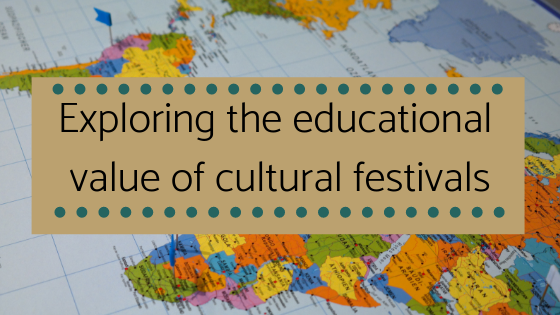
Last summer I learned a Ukrainian dance, attempted to play African drums, and ate blood sausage, all in the streets of Toronto. Cultural events are always tons of fun, and a great way to help children learn about world history, geography and social studies with these simple strategies.
Before attending the festival, help your child find the country or region on a globe or map. Before heading out to Liuna Portugal Week Festival and Concert, we found Portugal on the globe and discussed what other countries and bodies of water border it. If your children are old enough, discuss how the country’s relationships with its neighbours have shaped its history and borders. Use the geographical features to predict the types of food you may see at the festival. For example, proximity to the sea is a sure sign you may be snacking on seafood. Long winters usually mean a variety of preserves, pickled veggies, salted and cured meats at the table.
Google the county’s flag. You will be seeing a lot of it at the festival. Depending on the age of your child, you might print out a coloring sheet of the flag and colour it in.
Look up the region’s popular sports and famous athletes. You will have a chance to practice face recognition when you spot merchandise with the likeness of these celebrities sold at the event. Of course, with or without Portuguese Fest, all my children, including the six-year-old, knew what Cristiano Ronaldo looks like.
Practice pronouncing their names and maybe even a few simple words in the language. Have a discussion about how the pronunciation rules differ from English. One thing we learned at the Portuguese festival was that x is often pronounced as sh in Portuguese.
If the country is famous for a certain dance, music, food or sport, talk about that as well.
When you are at the event, help your child spot and identify the things you discussed at home: flags, sports memorabilia, food and musical instruments. Notice the music and the language of the performers. Try to catch any words you might recognize. Many English words are borrowed from other languages. See if you can catch any similarities.
The outcome will amaze you. After attending her first Greek fest as a toddler, my niece began looking up flags of every country mentioned in her presence, and asking to find it on the globe. Don’t force the lessons, but let them be a small part of a fun experience. Check out the lineup of street festivals for the next couple of months, and by the end of the summer, your child will be an expert on world cultures and geography.
Maria Gurevich
